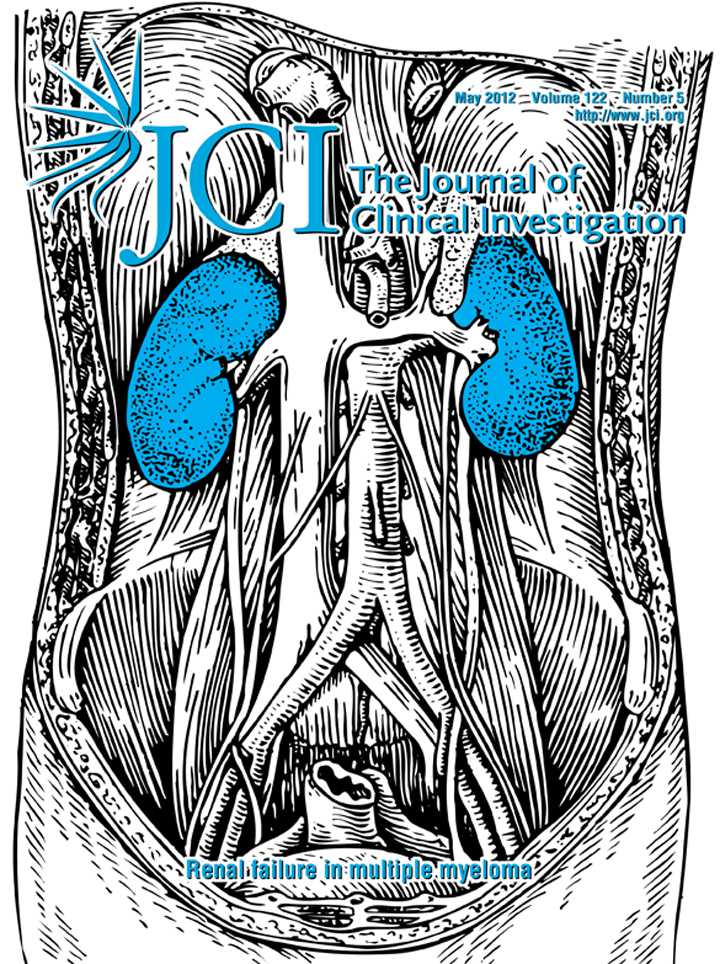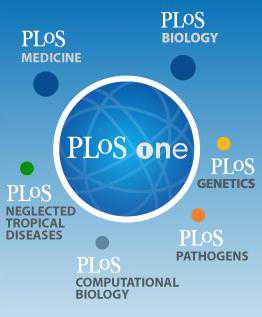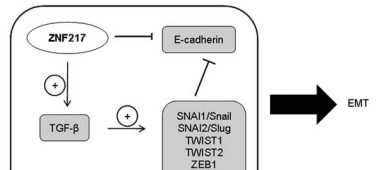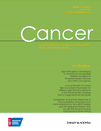Science:解释肿瘤生长的一个新的假说
2012-06-05 EurekAlert! EurekAlert!
抹掉整个基因簇的大规模基因变异在癌症中是常见的,尽管人们对它们是否实际上驱动着疾病的发展仍然不清楚。 近日,刊登在Science上的一项新的研究表明,这些被称作半合子局灶性缺失的突变确实会促进细胞的增生,因为其影响的基因组区域富集着肿瘤抑制性基因。人类的肿瘤充斥着重组、清除、放大或以其他方式破坏一系列基因的基因组改变。确定在这许多改变中有哪些在癌症中起着致病性的作用是一个重大的挑战。半合子局灶性
抹掉整个基因簇的大规模基因变异在癌症中是常见的,尽管人们对它们是否实际上驱动着疾病的发展仍然不清楚。
近日,刊登在Science上的一项新的研究表明,这些被称作半合子局灶性缺失的突变确实会促进细胞的增生,因为其影响的基因组区域富集着肿瘤抑制性基因。人类的肿瘤充斥着重组、清除、放大或以其他方式破坏一系列基因的基因组改变。确定在这许多改变中有哪些在癌症中起着致病性的作用是一个重大的挑战。半合子局灶性缺失——它首先会影响某些染色体区域并导致一整组相邻基因的一个拷贝的丧失——尤其令人困惑。
Nicole Solimini及其同事在这些缺失中寻找具有癌症相关性属性的基因。他们发现了多个对增生进行负面或正面调节的“停止”和“开动”基因。半合子局灶性缺失似乎所针对的是具有相对多数的“停止”基因及相对少数的“开动”基因的“基因岛”。Solimini及其同事提出了一个“基因岛假说”,该假说提示,有这些缺失的细胞也许更有可能增生并产生肿瘤。

doi:10.1126/science.1219580
PMC:
PMID:
Recurrent Hemizygous Deletions in Cancers May Optimize Proliferative Potential
Nicole L. Solimini1, Qikai Xu1, Craig H. Mermel2,3, Anthony C. Liang1, Michael R. Schlabach1,*, Ji Luo1,†, Anna E. Burrows1, Anthony N. Anselmo1, Andrea L. Bredemeyer1, Mamie Z. Li1, Rameen Beroukhim2,3,4, Matthew Meyerson2,3, Stephen J. Elledge1,‡
Tumors exhibit numerous recurrent hemizygous focal deletions that contain no known tumor suppressors and are poorly understood. To investigate whether these regions contribute to tumorigenesis, we searched genetically for genes with cancer-relevant properties within these hemizygous deletions. We identified STOP and GO genes, which negatively and positively regulate proliferation, respectively. STOP genes include many known tumor suppressors, while GO genes are enriched for essential genes. Analysis of their chromosomal distribution revealed that recurring deletions preferentially over-represent STOP genes and under-represent GO genes. We propose a hypothesis called the Cancer Gene Island model whereby gene islands encompassing high densities of STOP genes and low densities of GO genes are hemizygously deleted to maximize proliferative fitness through cumulative haploinsufficiencies. Since thousands of genes are hemizygously deleted per tumor, this mechanism may help drive tumorigenesis.
本网站所有内容来源注明为“梅斯医学”或“MedSci原创”的文字、图片和音视频资料,版权均属于梅斯医学所有。非经授权,任何媒体、网站或个人不得转载,授权转载时须注明来源为“梅斯医学”。其它来源的文章系转载文章,或“梅斯号”自媒体发布的文章,仅系出于传递更多信息之目的,本站仅负责审核内容合规,其内容不代表本站立场,本站不负责内容的准确性和版权。如果存在侵权、或不希望被转载的媒体或个人可与我们联系,我们将立即进行删除处理。
在此留言














#SCIE#
64